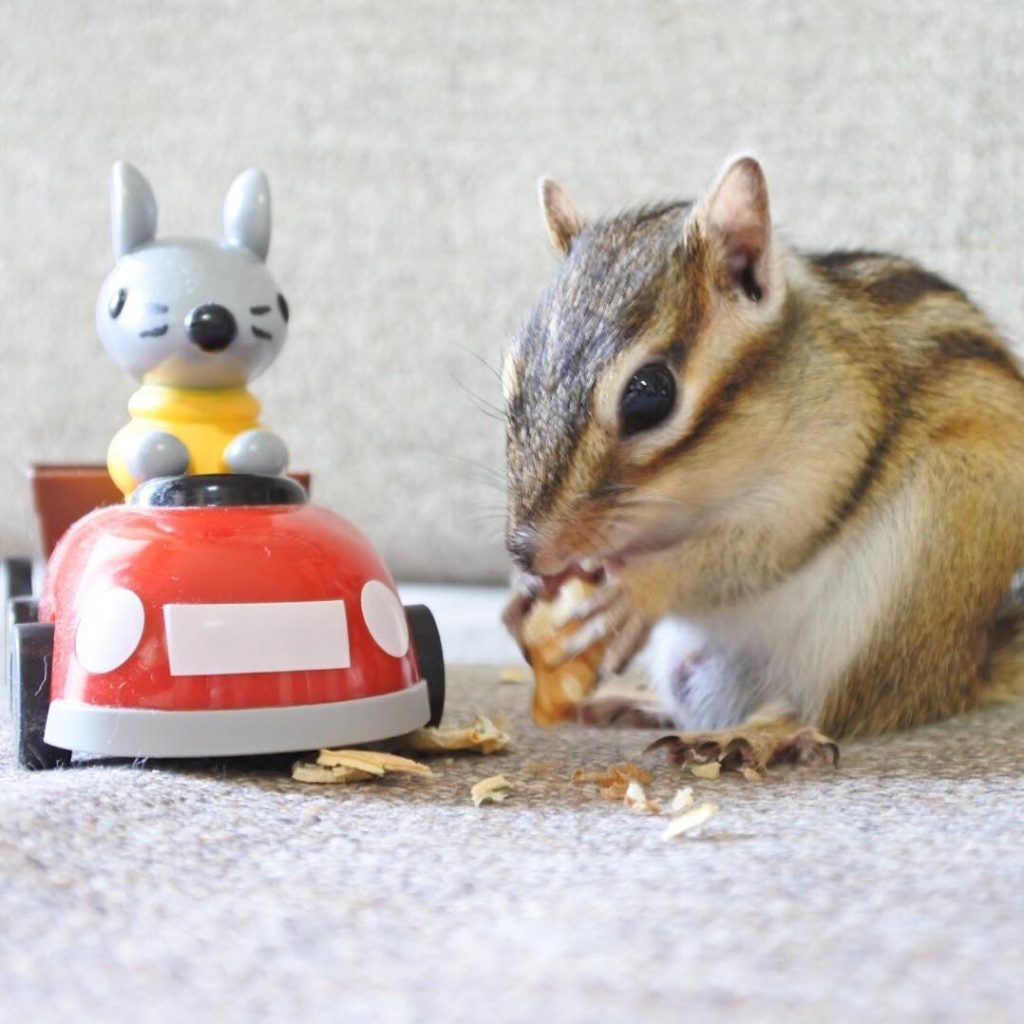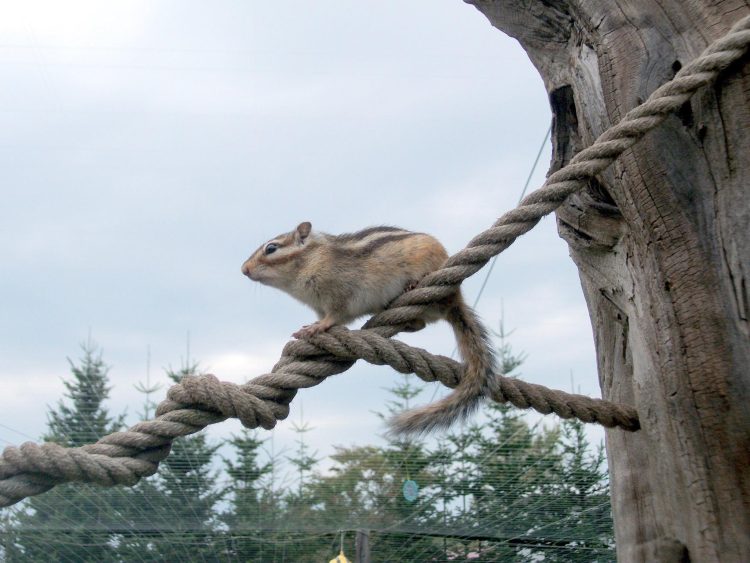Introduction: Understanding the Training Needs of Your Pet Chipmunk
Chipmunks are small, highly energetic, and curious animals, making them ideal candidates for training. While they are not as trainable as some pets, such as dogs or parrots, chipmunks can still learn a variety of behaviors, tricks, and commands, as long as training is approached with patience and consistency.
Training chipmunks offers both you and your pet significant rewards: increased bonding, mental stimulation for your chipmunk, and enhanced behavior that makes cohabitation more enjoyable. However, training chipmunks requires understanding their unique needs, behaviors, and psychology. With the right tools and strategies, you can successfully train your chipmunk and create a positive, cooperative relationship with your pet.
This article will provide a comprehensive guide to training your chipmunk, covering everything from basic behavior management to advanced tricks and skills, along with common challenges you may face and how to overcome them.
I. Chipmunk Behavior and Characteristics
A. Understanding Chipmunk Temperament
Before embarking on a training regimen, it’s essential to understand the basic temperament of chipmunks. These small, active rodents have unique personalities and tendencies that influence how they interact with their environment and people.
- Curiosity: Chipmunks are naturally curious animals. They are always exploring their surroundings, looking for food, and investigating new stimuli. This curiosity can be used to your advantage during training.
- Cautious Nature: While chipmunks are curious, they are also cautious and can be easily startled. They tend to be shy, especially when introduced to new environments or people. This means training needs to be done slowly and gently.
- Social Interaction: Chipmunks can become accustomed to human interaction, but they are solitary animals by nature. Therefore, training sessions should be done individually, and they may require time to develop trust in their human handlers.
- Energy Levels: Chipmunks are highly energetic and require stimulation to stay happy. Training can help expend some of their energy while providing enrichment.
B. Training Challenges with Chipmunks
Chipmunks’ unique traits can pose challenges for training. They are small, fast-moving animals that may not respond immediately to commands or behaviors as dogs or cats might. Additionally, their short attention spans can make it difficult to hold their focus for extended periods.
- Short Attention Span: Chipmunks can become distracted quickly. This means training sessions should be brief, engaging, and consistent.
- Stress Sensitivity: They are sensitive to stress and rapid changes in their environment, which can make training challenging if they feel overwhelmed.
- Limited Communication: Unlike dogs, chipmunks don’t have vocalizations or body language cues that are easy to interpret. Understanding their responses and adjusting your approach accordingly is key.
II. Preparing for Training: Setting the Right Environment
A. Creating a Safe and Comfortable Space
Training should take place in an environment where your chipmunk feels safe and comfortable. A stressful or unfamiliar setting can hinder progress.
- Quiet Area: Choose a quiet, low-traffic area for training to reduce distractions. Chipmunks can be frightened by loud noises or sudden movements, so a calm space is important.
- Small, Enclosed Area: During training, it may be helpful to place your chipmunk in a small, enclosed area, such as a playpen or a crate, so it doesn’t get distracted or escape. Make sure there are no sharp edges or harmful items inside.
- Comfortable Temperature: Chipmunks are sensitive to extreme temperatures. Ensure the space is at a comfortable temperature for your pet to prevent stress or discomfort.
B. Tools for Training
Before beginning training, gather the necessary tools that will help facilitate the process:
- Treats: Use small, healthy treats as rewards. Chipmunks enjoy seeds, nuts, fruits, and small pieces of vegetables. Find what your chipmunk enjoys the most.
- Toys: Stimulating toys or objects can be used to help capture your chipmunk’s attention and encourage participation in training.
- Clicker: A clicker is a popular tool used in positive reinforcement training, providing a distinct sound to mark good behavior and reward with treats.
- Patience and Consistency: The most important tools for training are patience and consistency. Chipmunks may take time to understand commands, so repeated training sessions are essential.
III. Basic Training Techniques for Chipmunks
A. Positive Reinforcement
The most effective way to train chipmunks is through positive reinforcement. Positive reinforcement means rewarding desirable behavior to increase the likelihood that the behavior will be repeated.
- Treat-Based Rewards: After your chipmunk exhibits the desired behavior, reward them immediately with a treat. This helps them associate the behavior with something positive.
- Consistency: Be consistent in rewarding the same behavior each time. This helps your chipmunk understand what you are asking them to do.
- Timing: Timing is critical when using positive reinforcement. Rewards must be given immediately after the desired behavior, so your chipmunk associates the reward with the action.
B. Training Steps and Techniques
- Teaching Your Chipmunk to Come to You:
- Step 1: Start by calling your chipmunk’s name in a gentle, calm voice while holding a treat.
- Step 2: When your chipmunk comes closer, reward it immediately. Keep the sessions short and avoid overwhelming your pet.
- Step 3: Repeat the process, gradually increasing the distance between you and your chipmunk, reinforcing the behavior each time it comes to you.
- Hand Feeding and Bonding:
- Step 1: Hand feeding is a great way to build trust and bond with your chipmunk. Hold a treat in your hand and allow your chipmunk to come to you.
- Step 2: Slowly encourage your chipmunk to take food from your hand. Do not force it—let the chipmunk decide when it feels comfortable.
- Step 3: Over time, increase the amount of time your chipmunk spends in your hand, making it more accustomed to human interaction.
- Teaching Your Chipmunk to Sit or Stay:
- Step 1: Place a treat near your chipmunk’s nose, then slowly move it toward the ground. As your chipmunk follows the treat, it may naturally sit.
- Step 2: When it sits, immediately reward it with the treat.
- Step 3: With patience, teach your chipmunk to stay by holding the treat just out of reach and rewarding it when it holds the position.
C. Short Training Sessions
Because chipmunks have short attention spans, limit training sessions to 5-10 minutes at a time. If your chipmunk starts to lose interest, it’s better to stop and resume the training later. Overtraining can lead to frustration and stress.

IV. Advanced Training Techniques
Once your chipmunk has mastered basic commands, you can move on to more advanced training techniques. These tricks will take more time and patience but can be an exciting challenge for both you and your pet.
A. Training Your Chipmunk to Do Tricks
- Roll Over or Flip:
- Step 1: Use a treat to encourage your chipmunk to move in a circular motion. Reward it each time it moves in the right direction.
- Step 2: Gradually shape the behavior by rewarding your chipmunk when it completes a full circle or a roll.
- Jump Through a Hoop:
- Step 1: Place a small hoop in front of your chipmunk, using a treat to encourage it to jump through.
- Step 2: Reward each successful jump through the hoop, and gradually raise the hoop higher as your chipmunk gets more comfortable.
- Fetch or Retrieve:
- Step 1: Show your chipmunk a small object, such as a ball or toy, and encourage it to pick it up.
- Step 2: Once it picks up the object, reward it and repeat the process until the chipmunk brings the object back to you.
B. Overcoming Training Challenges
- Dealing with Resistance: Some chipmunks may resist training at first. If your chipmunk doesn’t respond to treats or commands, consider taking a break and trying again later. It may take time to build trust.
- Distractions: Chipmunks are curious creatures, and distractions can easily take their focus away from training. Start training in a distraction-free environment and gradually introduce new stimuli as your chipmunk becomes more adept at focusing.
- Avoiding Overstimulation: If your chipmunk becomes overstimulated, it may stop engaging with you. Always watch for signs of stress or fatigue, such as rapid breathing, excessive movement, or fleeing.
V. Conclusion: Building a Strong Bond with Your Chipmunk Through Training
Training your chipmunk is not only about teaching them tricks and commands; it’s about building trust and deepening your bond with your pet. With patience, consistency, and positive reinforcement, you can teach your chipmunk a wide variety of behaviors while enriching their lives and making them more comfortable in their environment.























































